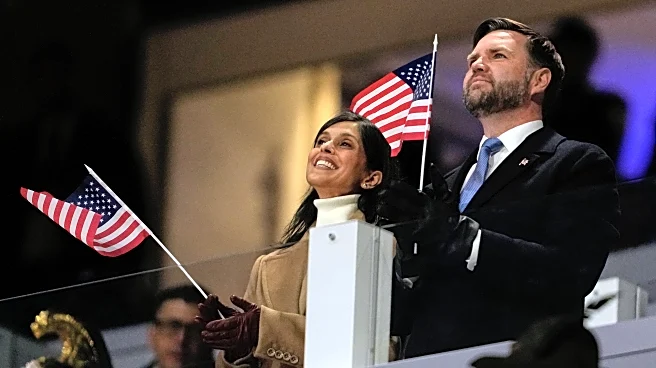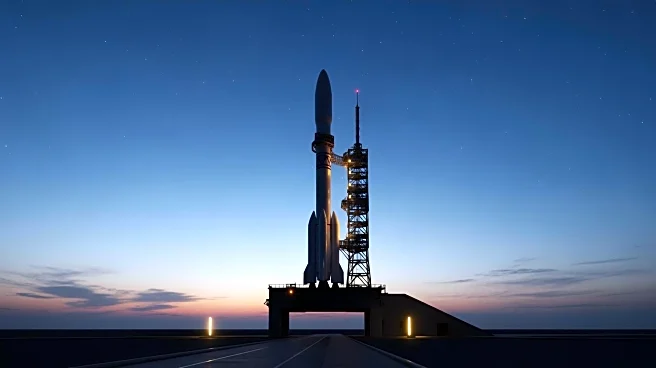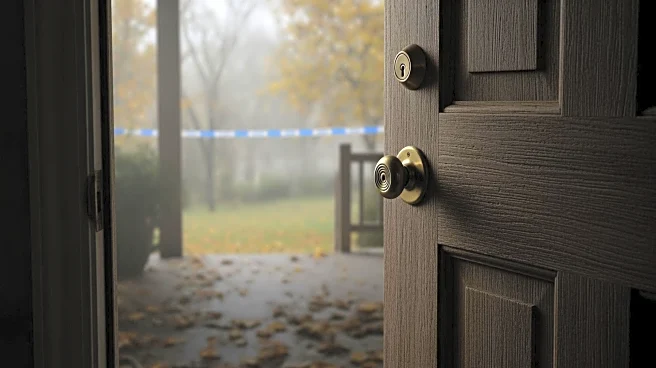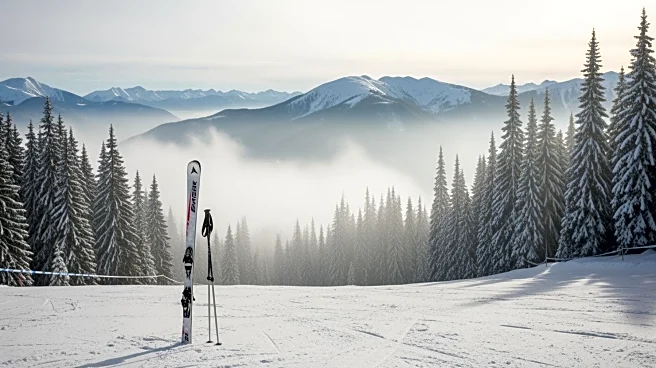What's Happening?
President Donald Trump has postponed a planned meeting with Russian President Vladimir Putin, citing concerns that it might be a 'waste of time.' This decision follows a call between Secretary of State
Marco Rubio and Russian Foreign Minister Sergey Lavrov. European leaders have expressed relief at the delay, accusing Putin of using diplomacy to stall while gaining ground militarily. They oppose any suggestion that Ukraine should surrender land for peace, a stance Trump has previously suggested. The leaders plan to use frozen Russian assets to support Ukraine, despite legal concerns. Trump’s stance on the conflict has shifted, initially pressuring Ukraine for concessions but later suggesting it could reclaim lost territory.
Why It's Important?
The postponement of the Trump-Putin meeting reflects the complexities of diplomatic negotiations in resolving the Ukraine conflict. European leaders' opposition to land concessions highlights the importance of maintaining international borders and resisting territorial aggression. The use of frozen Russian assets to fund Ukraine's defense could escalate tensions and raise legal challenges. Trump's fluctuating stance impacts diplomatic strategies and alliances, with European leaders striving to keep him aligned with their objectives. The situation affects economic sanctions on Russia, which are likely to be discussed at an upcoming EU summit, aiming to pressure Russia's economy and defense industry.
What's Next?
Trump is scheduled to meet with NATO Secretary General Mark Rutte, with discussions likely focusing on military support for Ukraine. A meeting of the Coalition of the Willing, comprising 35 countries supporting Ukraine, is scheduled in London. The EU summit in Brussels will likely address further sanctions on Russia. The potential provision of long-range missiles to Ukraine by the U.S. could influence the dynamics of the war and diplomatic negotiations. The diplomatic activities this week, as noted by Zelenskyy, indicate ongoing efforts to resolve the conflict.









